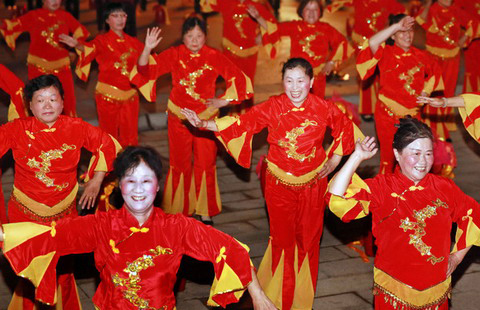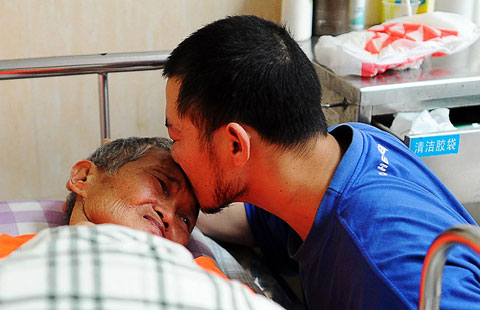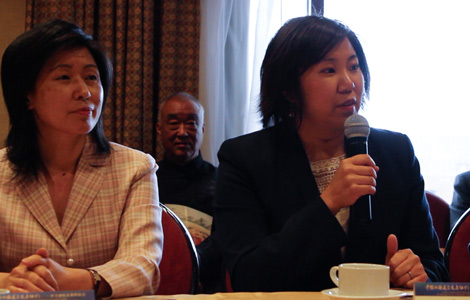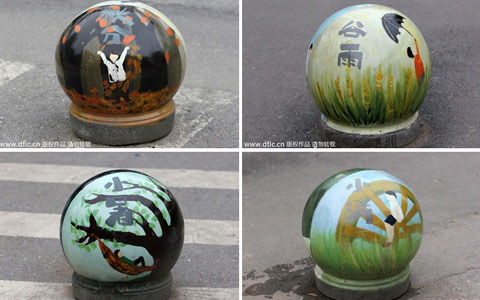Shanghai adds hospice beds as population ages
Updated: 2014-05-07 09:45
By Wang Hongyi in Shanghai (China Daily)
|
||||||||
Shanghai will step up its development of hospice care by adding 1,000 beds for palliative care this year.
At least one hospice has already been set up in each of the city's districts, and authorities plan to expand the coverage of such services citywide within three years, according to the Shanghai Health and Family Planning Commission.
"With the rapid growth of the aging population, the incidence of cancer and other chronic non-communicable diseases keeps rising year by year. Hospice care has become an important part of public health services," said Huang Hong, deputy director of the commission.
Of the 1,000 new beds, 600 will be set up in local nursing facilities.
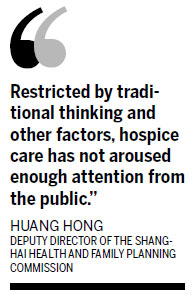
The city plans to set up hospice care departments at local nursing homes and community health centers. A hospice care network for cancer patients will also be established.
Unlike traditional medical care, palliative care aims to provide patients with quality of life in their last months or days. It focuses on relieving patients' pain rather than curing them. A comprehensive program is provided by well-trained staff members to meet the spiritual, emotional and physical needs of terminally ill patients.
Shanghai's population numbers more than 24 million, with people age 60 and above accounting for about 27 percent. About 81,300 people, such as cancer patients, people of advanced age and those with advanced illnesses, need hospice care.
Hospice care "should be provided to more patients who need such care", said Hu Qingli, professor of the medical school of Shanghai Jiao Tong University and former deputy director-general of the World Health Organization.
"Despite the huge demand, however, the development of hospice care remains stunted in China due to traditional perception," Hu said.
In China, the topic of death has long been taboo, and many people still avoid talking about it. The country has had hospice care groups providing modern services since at least the 1990s, but it was not until recent years that hospice care has been more openly discussed and provided in more hospitals and medical facilities.
"Restricted by traditional thinking and other factors, hospice care has not aroused enough attention from the public. Now we are working to find a breakthrough to improve it," Huang said.
Contact the writer through wanghongyi@chinadaily.com.cn
Most Viewed
Editor's Picks

|

|

|

|

|

|
Today's Top News
Chinese applicants for US grad schools drop
Chinese applications to US grad schools dip
US beef industry eager for China to resume imports
For many parents and kids, it's 'Harvard, Harvard, Harvard!'
Oversight of GM crop samples to be boosted
Chinese man killed in car crash
China, AU to deepen comprehensive co-op
Skin rash patients hardest hit by nudity ban
US Weekly

|

|




